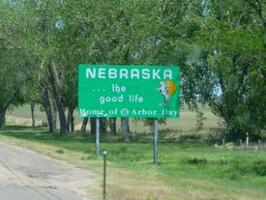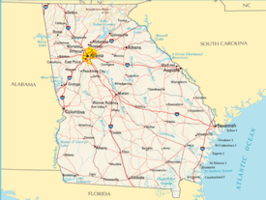Nebraska: Romney 52%, Obama 35%
The top two Republican presidential hopefuls hold double-digit leads over President Obama in Nebraska, a state which has gone for the GOP candidate in every presidential election but one since 1940.
The first Rasmussen Reports statewide telephone survey of Likely Voters in the Cornhusker State shows former Massachusetts Governor Mitt Romney leading the president by 17 points - 52% to 35%. Ten percent (10%) prefer some other candidate in the race, while three percent (3%) are undecided. (To see survey question wording, click here.)
This Nebraska survey of 500 Likely Voters was conducted March 5, 2012 by Rasmussen Reports. The margin of sampling error is +/- 4.5 percentage points with a 95% level of confidence. Fieldwork for all Rasmussen Reports surveys is conducted by Pulse Opinion Research, LLC. See methodology.









